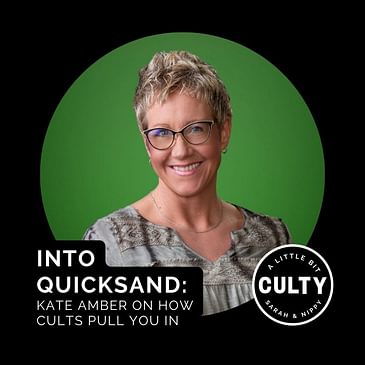This episode is sponsored by BetterHelp.
Landmark Worldwide is a corporation that offers personal and professional development programs with a total of over 2.4 million (!) past participants in 21 countries. Yikes on bikes—that sounds a bit like NXIVM on steroids. Well, while Landmark isn’t technically a cult, it certainly is “A Little Bit Culty”, with no shortage of spirit-stomping coercive control and intimidation in order to create “A world that works for everyone by 2020.” Wait, is that how 2020 went and we’re just misremembering it?!
Today’s guest, Kate Amber, survived Landmark and went on to become a badass expert on violence and abuse prevention after receiving her education from UPenn and the University of Salford. She’s also gone on to create the PsychoSocial Quicksand Model™—take a listen to learn all about it, as well as the time she challenged a Landmark leader, and how she eventually got out, even if she didn’t 100% want to (at the time).
Oh, and would you believe she has a Keith Raniere overlap? What a small, culty little world we live in.
Watch Sarah discuss Lori Vallow on NewsNation (Elizabeth Vargas Reports)
Facebook for End Coercive Control USA
Twitter for End Coercive Control USA
Kate’s Twitter
Check out How to Spot a Spider using our affiliate link: https://spotaspider.com/?ref=albc
Please note, this series includes details of sexual abuse. Listener discretion is strongly advised. If you, or someone who know, is a survivor of sexual assault, abuse, grooming, child abuse, or human trafficking, RAINN’s National Sexual Assault Hotline offers support at 800.656.HOPE (4673).
Also…
Hear Ye, Hear Ye:
The views and opinions expressed on A Little Bit Culty do not necessarily reflect the official policy or position of the podcast. Any content provided by our guests, bloggers, sponsors or authors are of their opinion and are not intended to malign any religion, group, club, organization, business individual, anyone or anything. Nobody’s mad at you, just don’t be a culty fuckwad.
Other Links:
Check out our lovely sponsors
Join ‘A Little Bit Culty’ on Patreon
Get poppin’ fresh ALBC Swag
Support the pod and smash this link
Cult awareness and recovery resources
CREDITS:
Executive Producers: Sarah Edmondson & Anthony Ames
Production Partner: Citizens of Sound
Producer: Will Retherford
Senior Producer: Jess Tardy
Writer: Mathias Rosenzweig
Theme Song: “Cultivated” by Jon Bryant co-written with Nygel Asselin
Learn more about your ad choices. Visit megaphone.fm/adchoices

